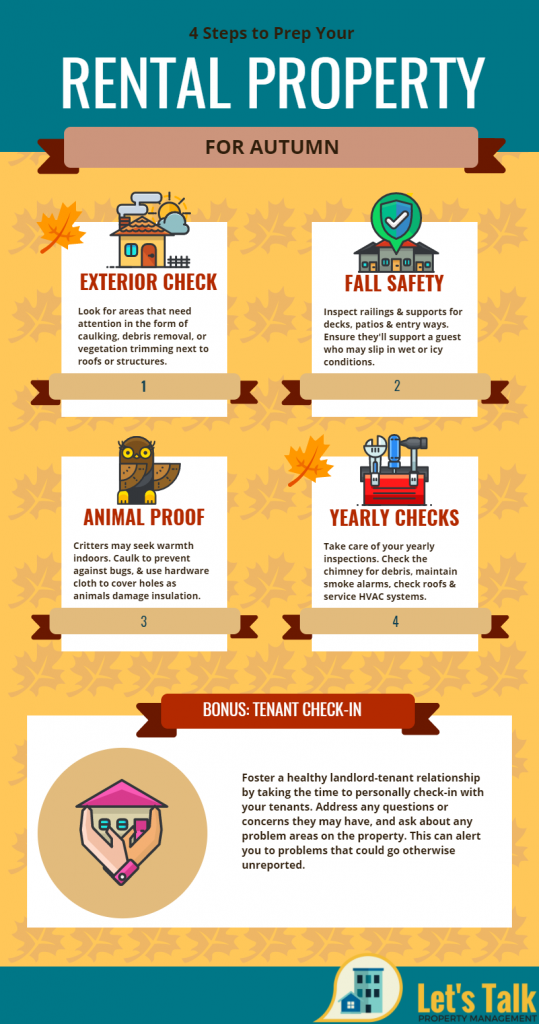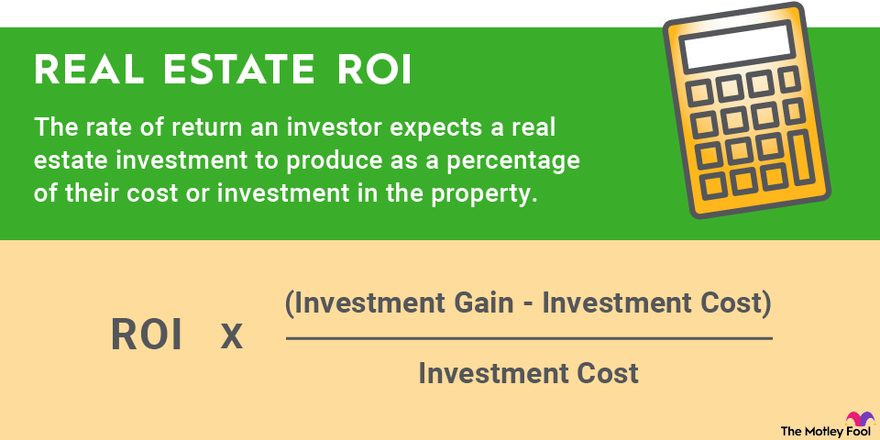Discover clever strategies to maximize your rental income and watch your ROI soar with these expert management tips today!

Image courtesy of Pixabay via Pexels
Table of Contents
- Introduction to Rental Properties
- Setting Up Your Property for Success
- Finding the Right Renters
- The Money Part: Setting Rent and Handling Finances
- Be a Great Landlord
- Regular Maintenance Matters
- Staying Legal
- Embracing Technology
- Planning for the Future
- Summary: The Path to Rental Property Success
- FAQs: Answers to Common Questions
Introduction to Rental Properties
Welcome to the world of rental properties! Today, we’re going to explore the ins and outs of managing a rental property, from understanding what it is to why managing it properly is so important.
What Is a Rental Property?
So, what exactly is a rental property? A rental property is a place where someone can live but instead of owning it, they pay rent to the owner. It’s like borrowing a house or an apartment in exchange for money every month. Pretty cool, right?
Why Is Managing It Important?
Now, why does managing a rental property matter? Well, managing it well can make the whole rental experience better for everyone involved. Good management can keep the property in good shape, make sure rent is paid on time, and overall make it a happy home for the people living there. It’s like taking care of a big puzzle with lots of moving pieces!
Setting Up Your Property for Success
So, you’ve got a rental property, and you want to make sure it’s attractive to potential renters. One of the simplest but most effective ways to do this is by making your property shine! This means keeping it clean, tidy, and well-maintained. A fresh coat of paint, some new curtains, and a clean carpet can go a long way in making your property stand out.
Safety First
Before renting out your property, it’s crucial to make sure that everything is safe for people to use. This includes checking for any potential hazards like loose wires, broken stairs, or leaky pipes. Ensuring that your property is safe not only protects your tenants but also helps you avoid any legal issues down the line.
Finding the Right Renters
When you own a rental property, finding the right renters is essential for a successful and hassle-free experience. Here’s how you can attract reliable tenants who will take good care of your property:

Image courtesy of www.rentecdirect.com via Google Images
Advertisement
One of the first steps in finding the right renters is to let people know that your property is available for rent. There are cost-effective ways to advertise, such as posting on online rental websites, social media platforms, or putting up signs in the neighborhood. Be sure to highlight the key features of your property that would attract potential tenants.
The Selection Process
Once you have prospective tenants interested in your rental property, it’s important to have a selection process in place to choose the best fit. You can conduct interviews, background checks, and ask for references to ensure that the renters you choose are responsible and reliable. Consider their rental history and ability to pay rent on time as crucial factors in your decision-making process.
The Money Part: Setting Rent and Handling Finances
Setting the right rent amount is crucial to attract good tenants and maximize your rental income. To determine the optimal rent price, you can start by researching similar properties in your area to see what they charge. Consider the size, location, amenities, and condition of your property when deciding on a competitive rent rate. It’s essential to find a balance between earning a fair profit and staying competitive in the market.
Keeping Track of Money
Organizing your finances is key to successful property management. Implementing a system to track rent payments, expenses, and profits can help you stay on top of your financial responsibilities. Consider using spreadsheets or property management software to streamline the process. It’s essential to set a budget for your property and stick to it to ensure that you’re making a profit and covering all necessary expenses.
Be a Great Landlord
As a landlord, it’s important to build a positive relationship with your tenants to ensure a successful rental experience. Here are some tips on how to be a great landlord:

Image courtesy of idapm.com via Google Images
Communication Is Key
Clear communication is essential in any relationship, including the one between landlords and tenants. Providing clear instructions, responding promptly to inquiries, and addressing concerns can help avoid misunderstandings and conflicts. Keeping an open line of communication can create trust and mutual respect between you and your tenants.
Dealing with Problems
Even with the best planning, issues may arise with tenants. It’s crucial to handle these problems calmly and professionally. Whether it’s a maintenance issue, a lease violation, or a disagreement, approach the situation with empathy and a willingness to find a solution that works for both parties. By being proactive and respectful in resolving conflicts, you can maintain a harmonious relationship with your tenants.
Regular Maintenance Matters
When something in your rental property breaks, it’s important to fix it as soon as possible. This not only keeps your tenants happy and comfortable but also prevents the problem from getting worse. Quick repairs can save you time and money in the long run. So, if you notice a leaky faucet or a broken light fixture, don’t delay in getting it fixed!
Keeping It Clean
Regular cleaning is essential for maintaining your rental property. A clean property not only looks nice but also prevents bigger issues from arising. Dusting, vacuuming, and mopping on a regular basis can help keep pests away and ensure that your property stays in top condition. When your tenants move out, a thorough cleaning can also help attract new renters and maintain the value of your property.
Staying Legal
As a landlord, it’s crucial to follow the laws and rules that relate to renting out property. By staying legal, you not only protect yourself but also ensure a positive and lawful rental experience for both you and your tenants.

Image courtesy of northeastpcg.com via Google Images
Know the Laws
Understanding the legal rules about renting property is essential. These laws vary by location, so familiarize yourself with the regulations in your area. This includes knowing the requirements for security deposits, lease agreements, property maintenance, and evictions. Staying informed and compliant will help you avoid legal issues down the line.
Respecting Tenant Rights
It’s not just important to know the laws; you must also respect the rights of your tenants. Treating tenants fairly, addressing concerns promptly, and providing a safe and habitable living environment are not only ethical practices but also mandated by law. By respecting tenant rights, you can build a positive relationship with your renters and ensure a harmonious rental experience.
Embracing Technology
Managing a rental property can be a breeze with the help of technology. Let’s explore some ways in which technology can streamline the rental management process.
| Tip | Description |
|---|---|
| 1. Regular Maintenance | Regular maintenance of the rental property can help prevent costly repairs in the future and keep tenants happy. |
| 2. Set Competitive Rent | Research rental rates in your area and set a competitive rent to attract tenants and maximize ROI. |
| 3. Screen Tenants Thoroughly | Thoroughly screen potential tenants to avoid issues with late payments, damages, or evictions. |
| 4. Increase Property Value | Invest in upgrades or renovations to increase the value of your rental property and command higher rent. |
| 5. Stay Organized | Keep proper documentation, records, and communication with tenants to streamline management processes. |
| 6. Hire a Property Manager | If managing the rental property becomes overwhelming, consider hiring a property manager to handle day-to-day tasks. |
Property Management Software
Property management software is a handy tool that can help you stay organized and efficient. These systems allow you to keep track of rent payments, maintenance requests, and tenant information all in one place. By using property management software, you can easily monitor your rental property’s performance and ensure everything runs smoothly.
Online Payments
Gone are the days of collecting rent checks in person. online payment options make it convenient for tenants to pay their rent from anywhere with just a few clicks. Accepting rent payments online can save you time and hassle, as well as help you avoid the risk of lost or late payments. Embracing online payments can make the rental collection process fast and efficient.
Planning for the Future
When thinking about the future of your rental property, it’s important to consider long-term improvements that can increase its value and rental income. Making upgrades like installing energy-efficient appliances, adding a fresh coat of paint, or enhancing the landscaping can attract quality tenants and justify higher rental rates. By investing in these improvements, you are not only ensuring the longevity of your property but also setting the stage for increased profitability in the years to come.

Image courtesy of www.fool.com via Google Images
Financial Security
As a savvy property manager, it’s essential to plan for unexpected situations that may impact your rental property’s income. Building a financial cushion to cover maintenance costs, vacancies, or emergencies will provide you with peace of mind and stability in times of uncertainty. By setting aside savings from your rental income, you can weather any storm that comes your way and maintain a consistent revenue stream from your property.
Summary: The Path to Rental Property Success
Managing a rental property can be a rewarding experience if done correctly. By following some key strategies and tips, you can increase your rental ROI and create a successful property management plan.
Introduction to Rental Properties
A rental property is a place where someone can live and pay rent to the owner. Managing it well is crucial to ensure a smooth rental experience for both tenants and landlords.
Setting Up Your Property for Success
To be successful in property management, it’s essential to make your property shine and prioritize safety. These simple steps can attract good tenants and create a safe living environment.
Finding the Right Renters
Effective advertisement techniques and a careful selection process are key to finding reliable and responsible tenants for your rental property.
The Money Part: Setting Rent and Handling Finances
Determining the right rent price and managing finances well are crucial aspects of rental property management that can help increase your rental ROI.
Be a Great Landlord
Communication is key when it comes to being a successful landlord. Building positive relationships with tenants and handling problems effectively can lead to a harmonious rental experience.
Regular Maintenance Matters
Keeping your property well-maintained through prompt repairs and regular cleaning not only enhances its appeal but also prevents costly damages in the long run.
Staying Legal
Following the legal rules and respecting tenant rights are vital components of successful property management to avoid legal issues and maintain a positive landlord-tenant relationship.
Embracing Technology
Utilizing property management software and online payment platforms can streamline tasks and make managing your rental property more efficient and convenient.
Planning for the Future
Thinking ahead, making long-term improvements, and ensuring financial security are essential strategies to secure a steady source of income from your rental property in the long run.
FAQs: Answers to Common Questions
How often should I check on the property?
It’s essential to visit the property regularly to make sure everything is okay. Depending on how far away you live or how many properties you manage, a check every month or two should be sufficient. This way, you can quickly address any issues and ensure your property is well-maintained.
What should I do if a tenant pays late?
If a tenant pays late, the first thing to do is communicate with them. Find out why the payment is delayed and try to work out a solution together. It’s important to be understanding but firm about the due date. If late payments become a recurring issue, you may need to consider setting up a late fee policy to encourage timely payments.
Idaho Poperty Management
